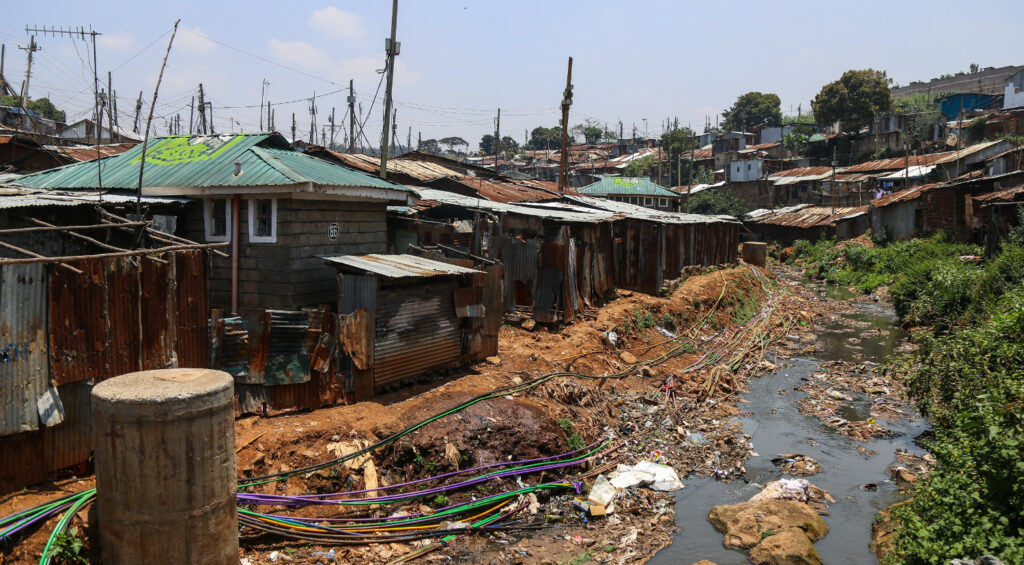“Africa cannot have a healthy society without adequate access to safe drinking water, sanitation and hygiene”. This is the recommendation made a few years ago by the African Development Bank (AfDB), the United Nations Environment Programme (UNEP) and Grid-Arendal. To help the continent find a way out of this problem, the three entities decided to bring together practical solutions in a document. The objective is to improve wastewater management and the provision of sanitation services, thereby preserving the health of populations and ensuring the sustainability of Africa’s natural resources.
The Atlas of Sanitation and Wastewater of Africa©UNEP
The “Atlas of Sanitation and Wastewater in Africa” is finally presented to the African community on February 2nd, 2021. The publication assesses Africa’s progress towards achieving sustainable development goals (SDGs) and other aspirations, including Africa’s Agenda 2063 and Africa Water Vision 2025, through maps, graphs and profiles of all African countries, including analyses of their water resources and the provision of basic services. The Atlas also explores circular economy approaches that can lead to the development of better infrastructure. “We also urge African governments to integrate sanitation programmes into their post-Covid-19 strategic planning,” the AfDB says.
Access to basic sanitation facilities and improved hygiene can, among other things, prevent the spread of diseases such as neglected tropical diseases and reduce the severity of the impact of conditions such as malnutrition and diarrhoea. “In Nigeria, diarrhoea causes the death of more than 70,000 children under five years of age every year,” says UNICEF.
State of sanitation in sub-Saharan Africa
Waste on the streets of Kampala in Uganda
The “Atlas of Sanitation and Wastewater in Africa” reveals that more than half of the population in 34 of the 38 countries in sub-Saharan Africa lack access to basic sanitation facilities for handwashing. And at least 32 per cent of the population still practises open defecation. Ethiopia is among the least developed countries in this area, with just 6.3 per cent of households having access to improved sanitation facilities, according to a 2018 report by the United Nations Children’s Fund (UNICEF). At 36 per cent, Mozambique has one of the highest open defecation rates in sub-Saharan Africa and 76 per cent of its population does not have access to improved sanitation facilities, according to the same source.
In contrast, the situation is much better in Senegal. In the West African country, 67.4 percent of the urban population and 42.3 percent of the rural population have access to sanitation, El Hadji Abdourahmane Ndione said in a statement written on AFRIK 21 in November 2020. According to the Director General of the Senegalese Association for Standardization (ASN), Senegal has reached this level thanks to the ISO 30500, ISO 24521 and ISO 31800 standards: “ISO 30500 establishes specifications for new domestic toilets that treat waste on site, and ISO 24521 provides recommendations for improving the quality of services and the safe management of sanitation services. The ISO 31800 standard specifies requirements to ensure the performance, safety, operability and maintainability of sludge treatment units”, precise El Hadji Abdourahmane Ndione. All these standards aim to provide the necessary requirements for the quality and safety of sanitation infrastructures and systems.
In addition, over the past 10 years, the AfDB has invested more than US$ 6 billion in improving sanitation and hygiene in sub-Saharan Africa. The pan-African financial institution agrees with UNEP and Grid-Arendal that much remains to be done. They stress that development finance institutions, governments and other sources need to build on the ‘Atlas of Sanitation and Wastewater in Africa’ to provide much greater and more strategic funding.
Inès Magoum
